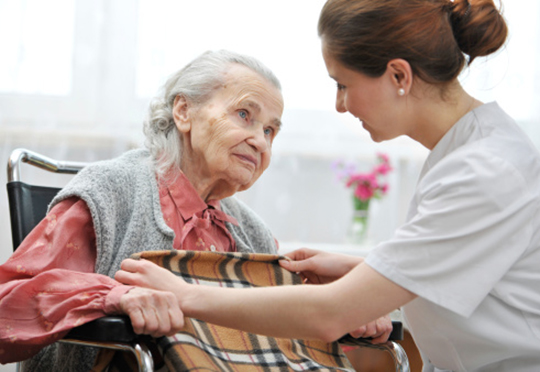 What began as a fact-finding conversation between Deb Brockman and Jane Cavender about ways for biology students to fulfill required clinical hours became a win-win partnership between Masonic Villages-Elizabethtown and Elizabethtown College.
What began as a fact-finding conversation between Deb Brockman and Jane Cavender about ways for biology students to fulfill required clinical hours became a win-win partnership between Masonic Villages-Elizabethtown and Elizabethtown College.
Brockman, chief human resources and compliance officer at Masonic Village, and Cavender, E-town professor of biology, developed a relationship between the two organizations that goes far beyond ‘fulfilled clinical hours.’ The conversation led to a certified nursing assistant (CNA) certification for students and the offering of intergenerational connections for Masonic residents.
“It’s a valuable partnership for the community,” said Brockman, who noted that the two institutions already have a history with occupational therapy, social work and music therapy interns.
The experience definitely confirmed that I want to go into the health care field.”
For E-town College students, the partnership offers the opportunity for a 40-hour CNA certification, which includes classwork, direct interaction with residents and a competency test. For Masonic Village, there is a guarantee of trained student CNAs who will, after passing their skills test, move to one of 10 residential neighborhoods – where residents live in a homelike atmosphere — to assist in care.
“Kudos to Dr. Cavender for wanting to provide opportunities to make this successful for the students,” Brockman said.
The students-in-training work with residents in transitional care, subacute care and memory care. “It’s resident-driven and person-centered,” said Brockman, noting that the community atmosphere of Masonic Village should feel familiar to the students. “People say living here is like living on a college campus,” she said about the Masonic Village community.
In June 2017, after a recommendation by Cavender, Amal Ismail, a sophomore biology-pre-med student with an interfaith leadership studies minor, became one of the first to begin training at Masonic Village. They were looking specifically for students in the medical field, Ismail said.
The training—how to feed, communicate with and dress residents—took place over 12 days, she said. “I worked in the dementia area where it’s a challenge to communicate. The care is very specific to the person.”
The average age of those in her care, she said, is about 70 and, though some residents were able to care for themselves, physically, some needed 100-percent attention. Interacting directly with the residents lets Ismail see, first-hand, the joys and challenges.
“The experience definitely confirmed that I want to go into the health care field,” Ismail said. “I like helping people.” Her ultimate career goal is to graduate from medical school to work in the neonatal specialty.
Aaron Belman began his internship with Masonic in July 2017. The senior biology-allied health major said he first learned a lot about the healthcare system, what goes on at an administrative level, long-term health care and acute care. “After that, I learned to properly ‘toilet’ someone, change bedding, bathe them,” he said. “Imagine every task you do—get up, brush your teeth, use the bathroom, dress, eat. Imagine not being able to do that. It can take three to four hours to get someone ready for bed.”
Like Ismail, Belman also worked in the secured dementia neighborhood.
The training, he said, opened his eyes to the need for privacy and respect in all interactions, no matter how small. “You need to get it done, but you need to get it done while making the person feel safe,” he said.
As part of the training, students are required to keep notes and documentation of their experiences. “Some of these are quite heartwarming when shared,” said Brockman.
Belman related a story about one of the first residents with whom he worked. The man was cognizant but could not respond properly. “He had oral aphasia,” Belman said of the resident’s inability to use or comprehend words. “I made sure I was talking with him, specifically telling him everything I was doing. I didn’t expect him to respond but, after I got him into bed, he said “thank you” and “goodnight.” That was important to me. It made me feel like I was in the right job.”
After Elizabethtown, Belman wishes to follow up on an interest in ophthalmology, something he has considered since taking a high school photography class. The lens on the camera, he said, drew him to the human eye and, subsequently, to the idea of optic surgery.
The CNA training and certificate, he said, is bonus in his academic endeavors.
Not only do the students and residents reap the benefits, so do the employees at Masonic Village, said Brockman. The nursing team works hard to tailor the assignments to the students. “The team loves students; they are good employees.”

